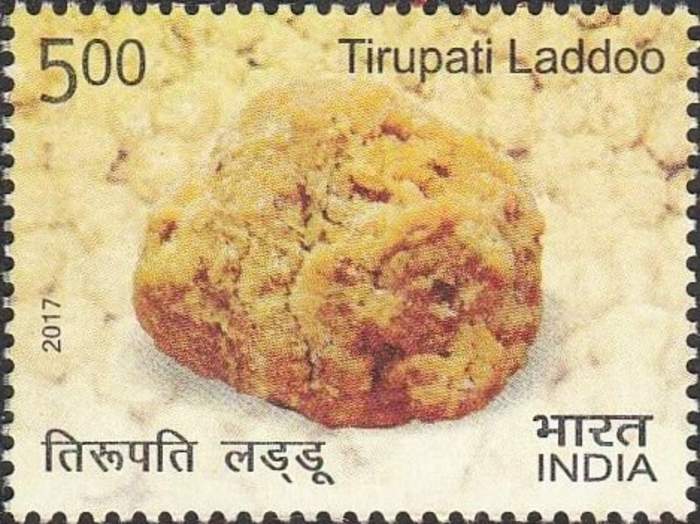 Tirupati Laddu
Tirupati Laddu, also known as
Tirumala Laddu or
Srivari Laddu, is a popular laddu prasada offered as Naivedhyam to Venkateswara at Tirumala Venkateswara Temple in Tirupati, Tirupati district, Andhra Pradesh, India. This laddu is given as prasadam to devotees after they have had darshan at the temple. The preparation of this iconic sweet dates back to August 2, 1715, evolving from a loose sweet called "Manoharam" to its current form. The laddu is prepared within the temple's kitchen, known as Laddu Potu, by the temple board, Tirumala Tirupati Devasthanams (TTD). The kitchen employs over 600 people, including skilled cooks known as Pachakas. To maintain its authenticity, the laddu was granted a Geographical indication (GI) tag in 2009, preventing unauthorized reproduction. There are several variations of the laddu, including the regular Proktham Laddu and the special Asthanam Laddu, prepared on festive occasions. Despite measures to curb black marketing, the laddu remains in high demand, leading to strict distribution protocols. In 2024, the laddu was at the center of a controversy over allegations of adulteration, prompting investigations and widespread public reactions. The TTD responded with quality checks and a purification ritual to preserve the sanctity of the offering.

